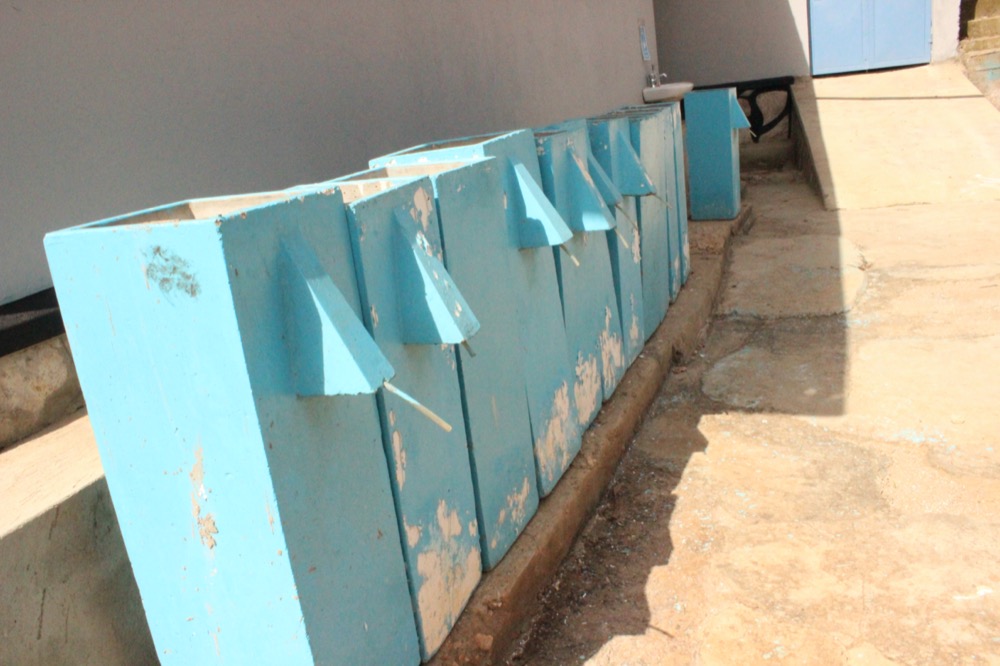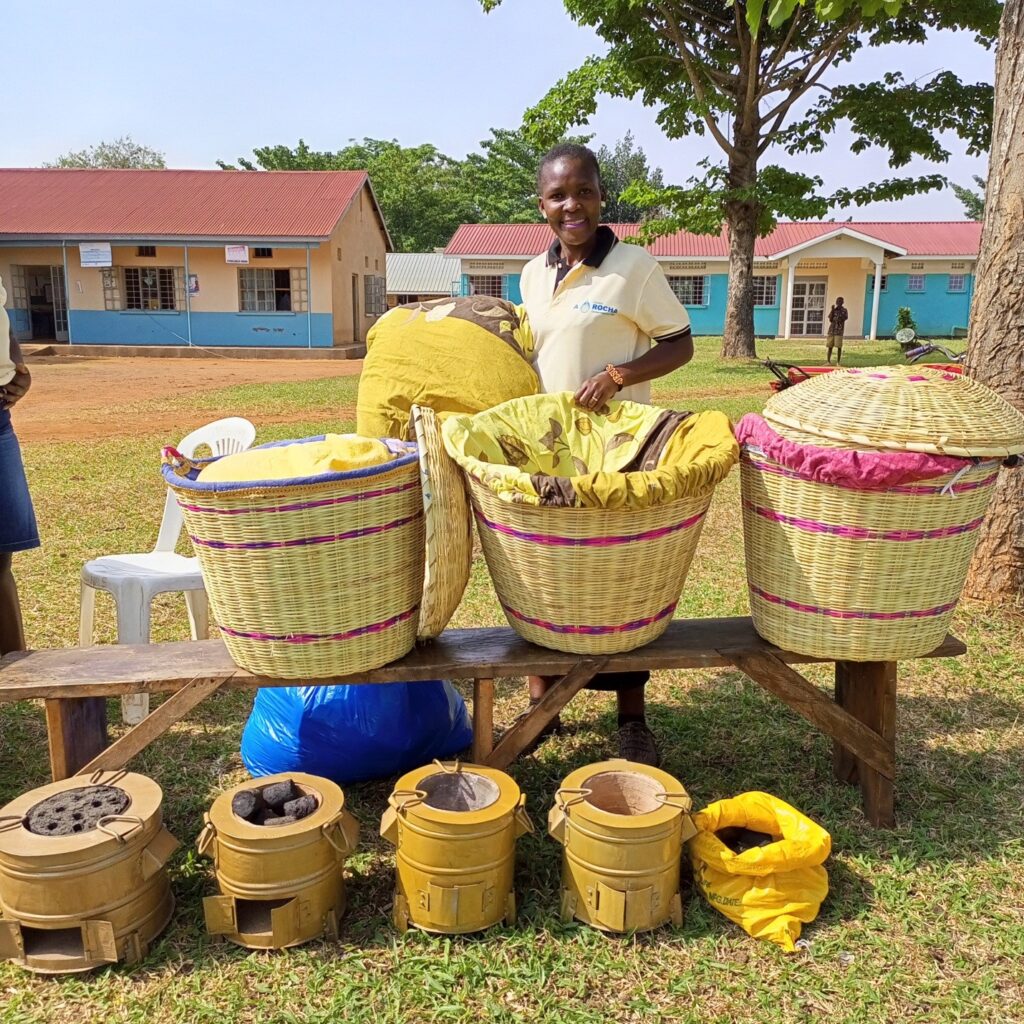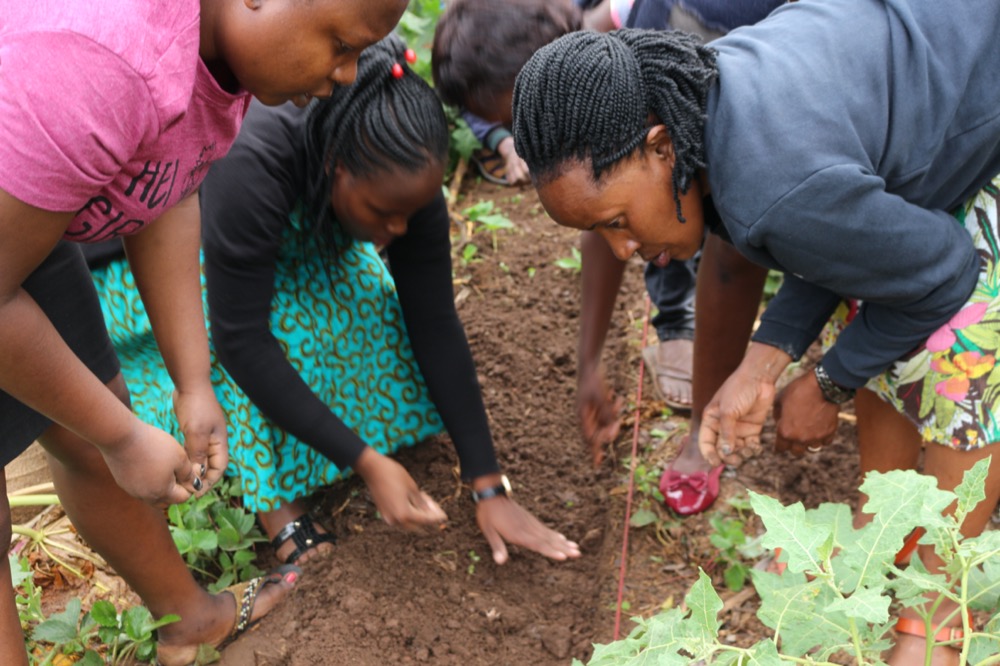Community Conservation
Since 2007 ARU has been implementing a number of community-based projects. These have contributed to improved livelihoods and adaptation to climate change.
1. Water, Sanitation and Hygiene (WaSH) projects
Biosand water filter
Contaminated water is poured into the top of the biosand filter at least once per day (but not continuously). The water poured into the top of the filter slowly drips through the holes in the diffuser, and flows down through the sand and gravel. Treated water flows out of the outlet tube.
Filters bring many other benefits, including financial savings as families spend less on fuel for boiling water, health benefits from reducing the impacts of smoke on lungs and eyes, and an improvement in overall health as more people in the extended family have better access to clean water, thus reducing incidences of diarrhea and other water-borne diseases.

2. Energy Conservation Projects
These comprise energy saving cook stoves, charcoal briquettes and fireless cookers promoted both in rural and urban communities.
Briquettes
They are a form of fuel made from biomass, compacted into a mold and burned as an alternative to wood or charcoal. They burn longer than charcoal and firewood of the same volume which makes them cheaper compared to other biomass fuels.
They can be produced locally for domestic use because they are easy to make and adopt. Briquettes also generate income and employment for communities.
Briquettes mean less rubbish because they are made from waste which makes them an environmentally friendly technology.
Fireless cookers
A fireless cooker is a box, basket or any other container filled with insulating material such as dried grass, papers, wood shavings, wool or dry banana leaves. After heating the food up in the usual way, the cooking pot or saucepan is placed in the fireless cooker and covered with a lid also filled with insulating material.
The fireless cooker uses much less fuel than cooking on a fire or stove which is a cheap and an environmental friendly way to cook.
The fireless cooker saves time spent in the kitchen. Water is not lost during the cooking process, so it uses one quarter less water than other cooking methods
Using a fireless cooker is a healthy way to cook. Most of the nutrients in the food are retained, it never burns the food, makes tough food like meat tender and keep food warm for a long time.

3. Farming God’s Way
A Rocha Uganda’s Farming God’s Way is a type of conservation agriculture that re-interprets the principles of no tillage, mulching and crop rotation using biblical metaphors such as God doesn’t plow, God’s blanket, and the Garden of Eden. This resource equips the poor to break the yoke of poverty. Farming God’s Way is easy, fast, requires less labour, gives high yields and retains soil fertility and water.
The Word of God says, ‘My people perish because of a lack of knowledge.’(Hosea 4:6) We must acknowledge the importance of teaching the poor faithfulness in the agricultural domain before the rest of the continent’s potential can be revealed.
Farming God’s Way has a proven track record of success since 1984, when Brian Oldreive first pioneered these practices. He established it on Hinton estate in Zimbabwe on a large scale commercial farm, eventually cropping 3,500 hectares. Since those early days, Farming God’s Way has spread into many countries, and is now being used by churches, missionaries and NGOs across the continent.

4. Lorena Stoves
There are quite a number of ways to cut fuel use, save trees, cooking time and money. Cooking using Lorena stoves is one of those unique ways.
The use of the Rocket Lorena stove significantly reduces the smoke in the kitchen, resulting in better health conditions for the family members. The economic benefits due to better health derived from the reduction of acute respiratory and eye diseases of women and small children as well as burns. Economic benefits derived from saved time and costs for health care.
It is assumed that 10% of the firewood savings preserved forest resources and that the value of forest reserves equals the derived afforestation costs of 0.0352 EUR per kg of firewood.
© 2023 A Rocha Uganda